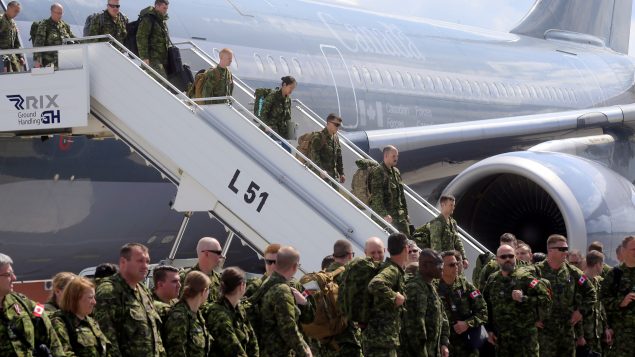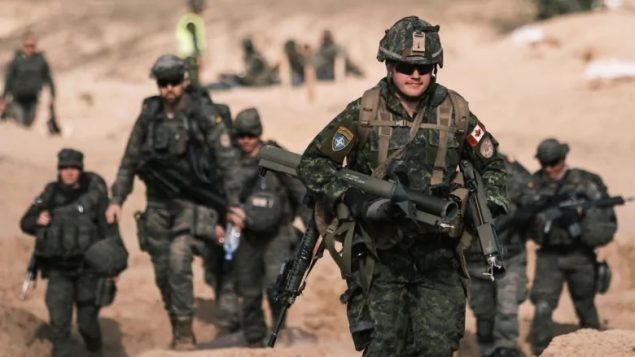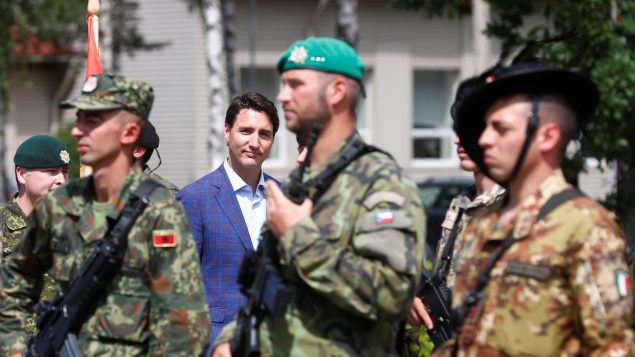Latvia’s government is attemting to allay fears about the danger of a reported COVID-19 outbreak among members of the Canadian military stationed in the Baltic country.
The Canadian military has released no figures about how many military personnel have been infected, but CBC News reports that sources in Canada’s Department of National Defence believe it’s only a handful.
The report also says an unknown number of soldiers from other nations taking part in a Canadian-led battle group had contracted COVID-19 at Camp Adazi outside of Latvia’s capital, Riga.
On Monday, Latvia’s ambassador to Canada, Karlin Eihenbaums, downplayed any danger, saying Latvia had needed health infrastructure in place at the camp.

A NATO battle group with Canadian soldiers arrives at Riga International Airport, in Riga, Latvia, June 10, 2017. (REUTERS/Ints Kalnins)
In an interview with CBC News, Eishenbaums said Latvia established a rapid testing centre and a standard laboratory testing facility at the camp several weeks ago and that masking and social distancing protocols in place at the camp and “have proven effective.”
“As a host nation, we have a very important and responsible task to take good care of all allies who are serving on our soil,” he said.
Canada currently has 540 members of the military stationed in Latvia.
They are the core of a 1,500-member NATO multinational battle group established in 2017 as a check against Russian aggression in the wake of the annexation of Crimea.
Similar battle groups, led by Britain, Germany and the U.S., were also established in Estonia, Lithuania and Poland.

A Canadian soldier carries spent light anti-tank weapons following the conclusion of Exercise Steele Crescendo, which took place outside of Riga, Latvia in May of last year. (NATO Handout)
Reports circulated recently in some Baltic and Eastern European media outlets suggesting the contingent at Camp Adazi had “a high number” of cases of the deadly virus, according to CBC News.
The task force commander at the time, Col. Eric Laforest, vigorously denied the reports.
In his CBC News interview, Eihenbaums said Latvian authorities were prepared for the pandemic’s second wave.
“With this type of virus it was expected and we took preventative measures, already, some time ago,” Eihenbaums said.
In a statement over the weekend, following renewed questions from CBC News, the defence department acknowledged there had been a recent outbreak but refused to supply numbers.
“For operational security reasons, specific numbers of affected members will not be released,” the statement read, adding that any affected members are now in isolation or quarantine.
With files from CBC News (Murray Brewster), RCI (Levon Sevunts), Government of Canada







For reasons beyond our control, and for an undetermined period of time, our comment section is now closed. However, our social networks remain open to your contributions.